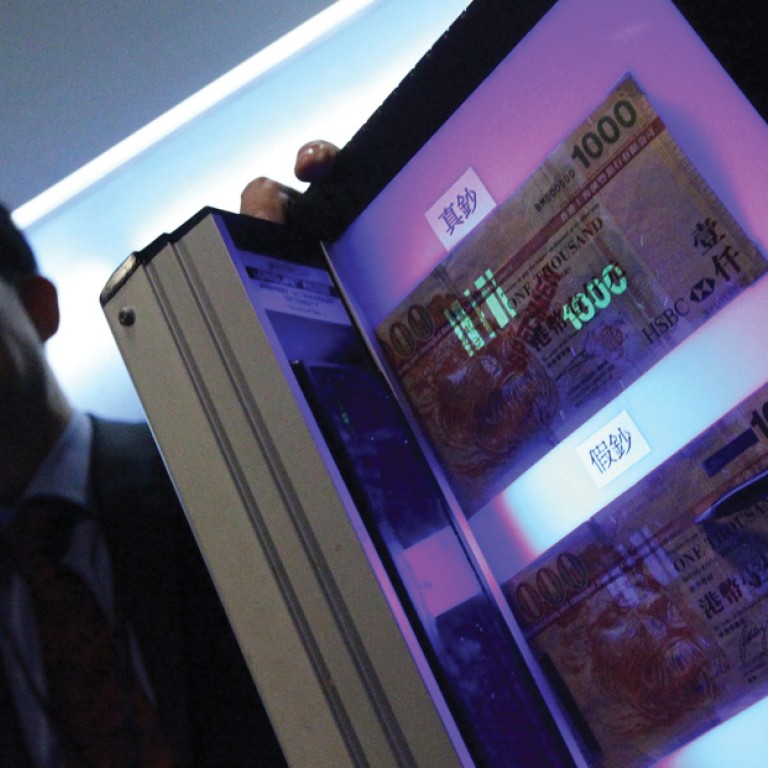
New | Concern grows in Hong Kong over fake HK$1,000 notes
Woman's arrest for allegedly trying to deposit 10 fakes at North Point bank fuels fears, with more businesses refusing to accept the bills
The Monetary Authority and police tried to calm public concerns about counterfeit money yesterday as more businesses in the city started refusing to accept HK$1,000 notes.

Among the bogus bills were seven copies of HSBC notes - the first from that bank to be seized.
The 53-year-old, who was released on bail last night, was the first person to be arrested since police in Macau seized fake 2003-design HK$1,000 banknotes bearing the names of HSBC and Bank of China (BOC) earlier this week.
Since then, several more fake notes have been seized in Macau.
Businesses are worried about being stung by fake notes during the coming Lunar New Year business boom, with one Chinese restaurant chain urging the authority to resolve the problem quickly before the holiday.
Many restaurants, cafes and shops have stopped accepting any HK$1,000 notes. Most drug stores in the Tsim Sha Tsui tourist area are rejecting 2003 BOC HK$1,000 notes. One money exchange shop said it would avoid all HK$1,000 notes.
But the executive director of the Hong Kong Monetary Authority's management department, Howard Lee, said there was no need for the public to be "overly worried".
The scale of the problem remains well below that of 2007, when a spate of fakes prompted a massive withdrawal and replacement of HK$1,000 notes.
"Some people rushed to banks to change their banknotes, but it was done in an orderly way," Lee said during a joint press conference with the police yesterday. "Citizens have responded calmly so far."
He said banks were gradually phasing out 2003 HK$1,000 notes issued by HSBC and BOC. Of 190 million HK$1,000 notes in circulation, 110 million issued between 2003 and 2010 had the 2003 design, Lee said.
In the 2007 counterfeit scare, HSBC wrote to the Hong Kong Association of Banks appealing for all members to withdraw and replace all HK$1,000 banknotes issued in 2000 and 2002.
A police spokeswoman said yesterday's arrest of the woman, identified only as Tsang, was made after she tried to deposit HK$300,000 cash into a company account at a Wing Lung Bank branch in North Point.
Staff found that seven HSBC notes and three Bank of China notes, all of 2003 design, were counterfeit and called the police.
Chief Inspector Cheung Ka-wai, of the police intelligence and support division, said the fakes looked highly authentic.
He said 22 BOC and seven HSBC fakes had so far been found in Hong Kong. Overall this year, 191 fake banknotes have been detected compared to 943 last year.
A Wing Lung Bank spokeswoman refused to disclose details of the company into whose account the arrested woman was making the deposit. She stressed that the bank would co-operate with the police investigation.

